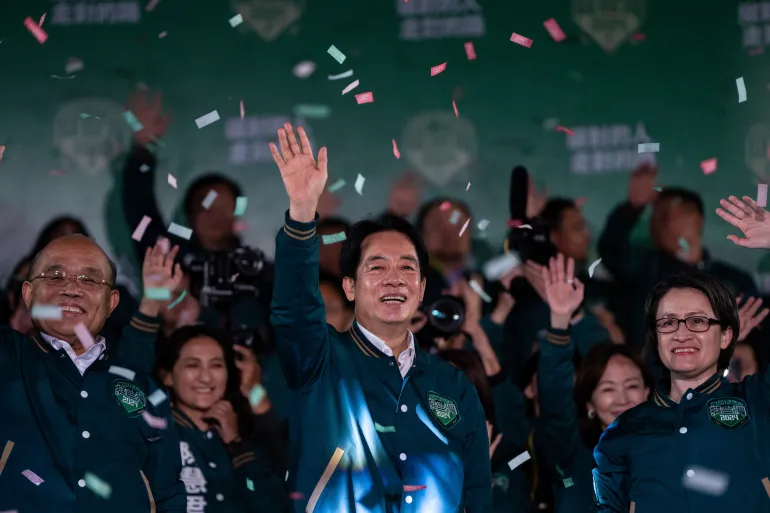The victory of the ruling-party candidate Lai Ching-te in Taiwan’s presidential election 13 January signifies the island country refuses to be cowed down by China and will not easily barter away its democracy to embrace the Red Dragon’s autocracy. The result shows the people of Taiwan are ready to chart the trajectory of relations with China over the next four years in the manner and style they want it to be. Not how it was dictated by China which had tried to manipulate the outcome by warning the electorate that they had “a choice between war and peace”. Simply put, China sought to cajole and cudgel the Taiwanese population to accept its domination if they wanted peace or else they would have to get ready for war or turbulent relations with it. At stake is not only the peace and stability of the 110-mile-wide strip of water between the Chinese mainland and the self-governed island nation but the entire region.
Taiwan’s presidential election saw an interesting battle of ideas. First, there was an attempt to create a coalition last November to unify two of the contenders—the KMT Nationalists and the Taiwan People’s Party (TPP)— so as to create a formidable united front against the third, the Democratic Progressive Party (DPP). But the two Opposition parties soon fell apart after bickering between the two.
Though the election results have clearly shown the mood of the people not to be controlled by China, there is no room for complacency for the ruling DPP as there is simmering discontent among the people, especially the youth. Taiwan is the world’s major supplier of microchips for simple items like Bluetooth to the most sophisticated technology for making missiles. Yet, the people of Taiwan are suffering from burgeoning problems of shortage of housing and stagnant wages. The final result reflects the dissatisfaction of a large number of people with over half the electorate voting for the alternatives to the DPP.
Nonetheless, the victory of Lai Ching-te is no mean achievement. He has managed to get over 40% of the vote, while this is the third consecutive win for his party. Significantly, many of the people who supported other parties were first-time voters. Their disillusionment with the failure of the two main parties bodes ominously for the DPP and KMT in the future. For the KMT, however, the outcome is disappointing and demoralising. The party was constantly criticized during the run-up to the election for its China policy. The people have not taken kindly the words of its leader, Ma Ying-jeou, urging the people to “trust Xi Jinping.” The KMT candidate Hou Yuyi struggled to explain how his party’s policy was to support unification with China at some stage, while resolutely setting its face against it happening during his watch. He intended to send across the message to the people that though he believed in Taiwan’s unification with China, he did not want it to happen during his tenure should he win the election. This is construed as unacceptable ambivalence and hypocrisy.
Beijing is certainly not pleased with the outcome and it regards the President-elect as a “separatist”. This means China will continue its policy of largely trying to isolate the island internationally and place economic and diplomatic pressure on it. China’s coldness towards Taiwan assumed new proportions since Tsai Ing-wen, the outgoing President, had come to power in 2016. In all likelihood the severed senior official links between the two will remain snapped.
Taiwan is reluctant to confront the more assertive, muscular China under President Xi Jin-ping. Lai has made it explicitly clear in his victory speech that he would prefer a balancing act whereby he will not declare Taiwan’s independence from China, but at the same time his government will not be subservient to China. This is a pragmatic approach that characterised his immediate predecessor’s policy. US President Joe Biden and his administration have been tactful enough to support China’s “one-China” principle, while pledging to defend Taiwan’s preference for democracy. This is in a way an endorsement of Lai’s victory which is a clear rebuff to China’s claim on the island.
